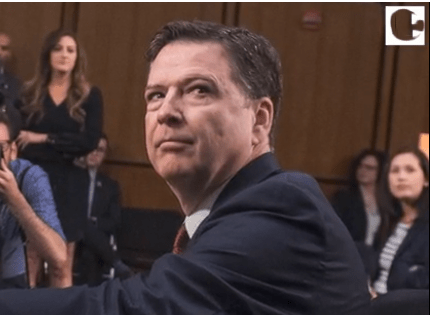James Comey’s son-in-law Troy A. Edwards Jr.’s resignation from the Department of Justice was a statement of principle rather than a sign of disobedience. Hours after Comey’s federal indictment, the timing highlighted the profound conflict between institutional loyalty and personal ethics. “To uphold my oath to the Constitution and country, I hereby resign effective immediately,” was his succinct resignation letter.

Edwards was considered a very diligent prosecutor for many years. He was employed in the Eastern District of Virginia’s National Security Section, which is well-known for managing intricate terrorism and espionage matters. His sudden departure was especially heartbreaking because his coworkers characterized him as “calm under pressure” and “meticulously fair.” His silent but firm departure echoed like a fallen gavel through the DOJ’s hallways.
Profile Summary
| Category | Details |
|---|---|
| Full Name | Troy A. Edwards Jr. |
| Relation | Son-in-law of former FBI Director James Comey |
| Profession | Federal Prosecutor, U.S. Department of Justice |
| Position | Assistant U.S. Attorney, Eastern District of Virginia |
| Specialization | National Security & Counter-Espionage |
| Resignation Date | September 25, 2025 |
| Reason for Resignation | “To uphold my oath to the Constitution and country” |
| Office | Eastern District of Virginia (same district prosecuting Comey) |
| Known For | Deputy Chief, National Security Section; DOJ integrity advocate |
| Source |
Political shockwaves followed Comey’s indictment on accusations of obstruction and making false statements before Congress. His family’s emotional fallout, however, was equally severe. Before submitting his resignation, Edwards made a brief appearance at the courthouse, where reporters observed his clearly restrained poise—a man who, in a single moment of moral clarity, balanced allegiance, law, and sorrow.
This episode is remarkably complicated because Edwards prosecuted his father-in-law while working in the same office. Remaining would have been subject to conflict of interest examination; leaving would have meant giving up years of service and stable employment. His quick, clear-cut, and publicly traceable choice served as a case study in ethical restraint as well as a personal statement.
The move was interpreted differently by observers on both sides of the political spectrum. Some thought it was an especially noble gesture that demonstrated his dedication to the DOJ’s integrity. Others interpreted it as symbolic dissent, a tacit criticism of a politicized legal system. Regardless of how it is interpreted, however, his departure felt remarkably successful in reaffirming one fact: values remain important even at great cost.
A family characterized by service continues to be at the heart of this tale. Maurene, the daughter of James Comey, was once a well-known Manhattan prosecutor who had previously had to battle her own career challenges. Citing her father’s legacy, she claimed political retaliation after being fired from the U.S. Attorney’s Office. She called for justice based on conscience rather than compliance in her parting message, which was especially moving. “Fear is the tool of a tyrant,” she said. It appears that the conflict between public duty and personal conviction is still embodied by the Comey family.
That same moral conviction is reflected in Edwards’ choice. He had a private meeting with a federal judge shortly before the indictment was released, according to people familiar with the matter. According to reports, the roughly 30-minute private conversation focused on the office’s oversight integrity and his possible recusal. His succinct, exact, and final resignation arrived in his superior’s inbox later that evening.
In the milieu of Washington, where remarks are carefully chosen, Edwards’s quiet was more powerful than criticism. It was “an act that restored faith when words couldn’t,” according to one DOJ insider. He greatly decreased the possibility of bias charges against the prosecution by distancing himself from the proceedings, which legal experts have referred to as “an exceptionally clear safeguard for justice.”
However, there is an obvious emotional cost hidden beneath the procedural clarity. Edwards’s exit is a profoundly personal one rather than merely a political one. He found himself torn between personal pain and national politics as a result of his marriage to Comey’s daughter. Nevertheless, he made the painful but noble choice to put the Constitution before comfort.
The wider ramifications go beyond this particular household. His move rekindled discussions about judicial independence and whether federal officials can ever fully separate their personal allegiances from their professional obligations throughout Washington. Edwards’ gesture felt refreshingly honest in a culture where loyalty is often questioned—a reminder that integrity can be especially inventive in its most subdued form.
Comey’s response to the indictment was one of cool defiance. “We ought to hold a trial. In a steady but tired tone, he urged in a video message, “And keep the faith.” He insisted on his innocence and expressed sadness for the Justice Department, which his own family had worked for a long time. These responses highlight how this story weaves together personal story and national ramifications, reverberating through courtrooms, family dinners, and the public’s collective conscience.
In the event that the case is appealed, former prosecutors have conjectured that Edwards’ retirement may be a crucial element. It might “display exceptional ethical distancing,” according to a senior legal analyst, defending the DOJ against procedural bias allegations from the defense. Others, however, see it as evidence that the Department’s internal divisions are more profound than are acknowledged.
In any case, the gesture prompts consideration of the price of honesty. Ignorance—no podium, no statement, no broadcast validation—may be Edwards’ instant reward. However, the lasting benefit might be legacy: the silent confidence that he made the right decision under pressure.
The story’s balance between rebellion and restraint is what stands out the most. He didn’t support his father-in-law or criticize the government. Rather, he stood squarely where justice wants its guardians to stand—firmly between law and devotion. That balance, delicate yet incredibly uncommon, seems incredibly effective in its moral clarity.
